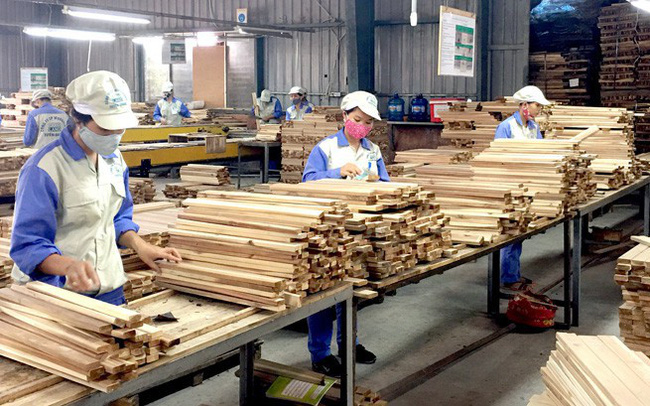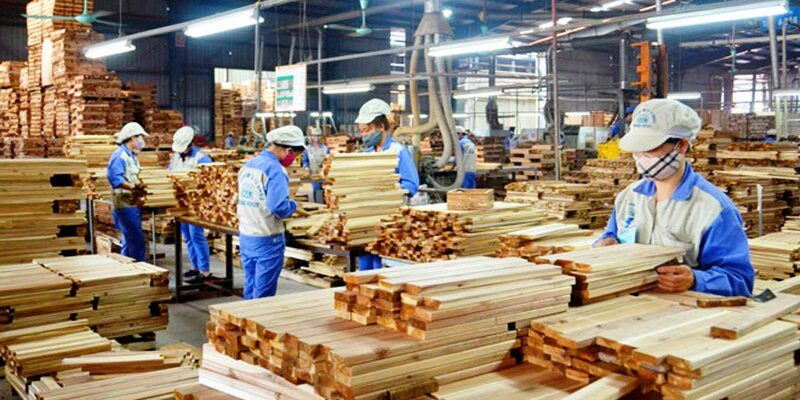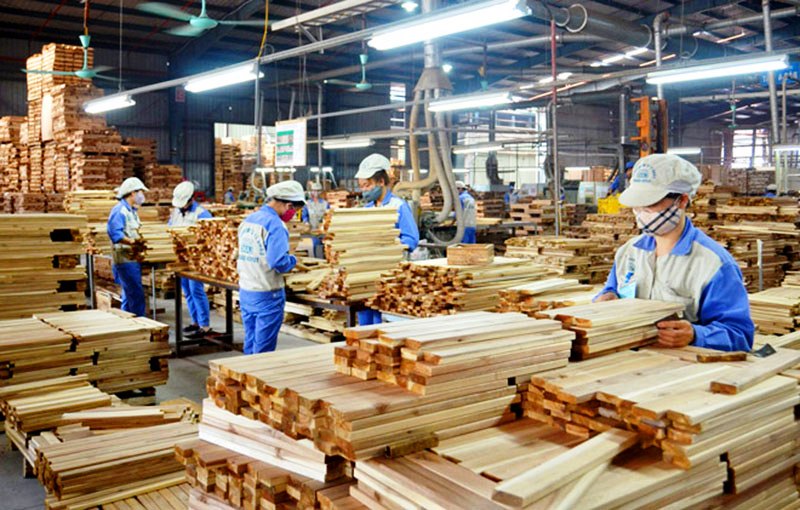Vietnam’s wood export industry has experienced significant growth in recent years, establishing itself as one of the key players in the global market. The country benefits from abundant forest resources, a skilled workforce, and competitive production costs. Vietnamese wood products, including furniture, plywood, and wood chips, are highly sought after internationally for their quality and affordability.
In recent years, Vietnam has diversified its export markets, reducing reliance on traditional markets such as the United States and the European Union. Emerging markets in Asia, particularly China and Japan, have become important destinations for Vietnamese wood products. Additionally, Vietnam has been actively engaging in free trade agreements (FTAs), which have facilitated access to new markets and boosted export growth. We will provide specific information in the article below.
Vietnam’s Wood Export Market Overview
In the first month of 2024 alone, Vietnam’s wood and wood product exports reached nearly $1.5 billion. According to data from the General Department of Customs, the export turnover of wood and wood products in 2023 reached $13.4 billion, a decrease of 16.2% compared to 2022. However, 2023 marked the first year Vietnam’s wood exports ranked in the top 5 globally.
According to information from the Ministry of Agriculture and Rural Development, the market showed a strong recovery in the first month of 2024, with a significant increase in export commodities. Among them, the export turnover of wood and wood products amounted to $1.49 billion, an impressive 72.5% increase compared to the same period in 2023. This is also the only agricultural sector item with export turnover surpassing $1 billion within just one month. The export results of this promising sector accounted for 29% of the total export turnover of the entire agricultural sector in Vietnam.

The furniture manufacturing industry in Vietnam, especially in the hotel furniture sector, has experienced significant growth over the past few decades. This development not only reflects Vietnam’s increasing manufacturing capabilities but also highlights the driving force behind the global furniture supply chain’s development. In-depth insights into Vietnam’s furniture industry, particularly focusing on hotel furniture, reveal several important aspects shaping the industry’s trajectory and its appeal to global buyers.
Growth Drivers and Export Momentum
Vietnam has emerged as a shining star in the global furniture production landscape, with exports exceeding $17.5 billion in 2022. This notable growth is attributed to several factors, including skilled labor, cost-effective manufacturing, and abundant natural resources such as wood and bamboo. The country’s transition from a modest local handicraft industry to a significant global player, especially in the hotel furniture sector, underscores the potential to meet the rigorous standards of the hospitality industry with high-quality, custom-made furniture solutions at competitive prices.
Strategic Advantages for Global Buyers
For hoteliers and business owners, Vietnam offers an enticing blend of quality, affordability, and innovation in furniture production. The ability to customize furniture to meet specific design and functional requirements, combined with competitive pricing and adherence to international standards, makes Vietnam an attractive sourcing destination. Moreover, the emphasis on sustainable materials and practices caters to the growing global demand for environmentally responsible products.
Challenges and Solutions
Despite its advantages, sourcing hotel furniture from Vietnam faces challenges such as language barriers, quality assurance, logistics, and regulatory compliance. Addressing these challenges requires a strategic approach, including working with bilingual sourcing partners, conducting thorough supplier evaluations, leveraging experienced logistics service providers, and ensuring products meet international quality and safety standards.
Deep Market Insights and Future Direction
An in-depth understanding of Vietnam’s furniture market highlights the importance of innovation, customization, and sustainability as key growth drivers. As the global hotel sector continues to expand, with an increasing focus on unique customer experiences and environmentally friendly practices, Vietnamese furniture manufacturers are well-positioned to meet these demands. The industry’s trajectory emphasizes a continuous focus on enhancing design capabilities, investing in sustainable materials and processes, and strengthening global partnerships to expand market reach.


